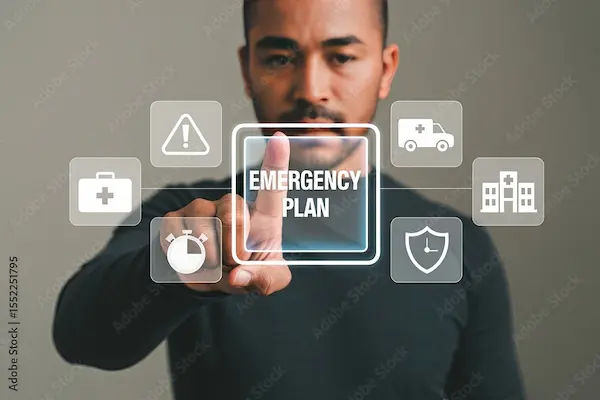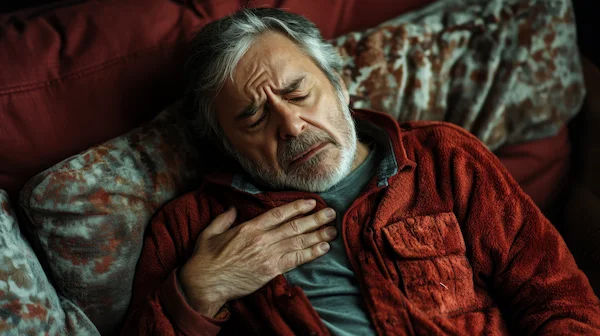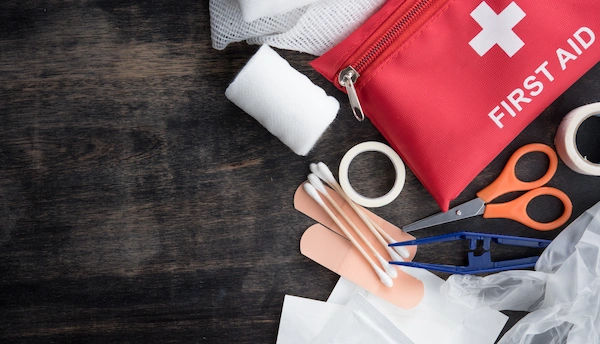Choking First Aid Kit Home Care What To Expect
Learn how to respond to choking emergencies at home with proper first aid steps, essential items for a choking first aid kit, and what to expect during and after the incident.


Choking is a silent, swift, and terrifying emergency that can happen to anyone, anywhere, but most often at home during meals. A piece of food, a small toy, or any object can suddenly block the airway, turning a normal day into a crisis. In these critical moments, knowing what to do and having the right tools on hand isn't just helpful—it's lifesaving. This guide will walk you through everything you need to know about assembling a comprehensive choking first aid kit for your home, the crucial steps to take during an emergency, and how to provide effective aftercare. Being prepared can make all the difference between panic and empowered action.
Why a Specialised Choking Kit is Crucial?
Most standard first aid kits are equipped for cuts, scrapes, and burns, but they often lack the specific tools needed for an airway obstruction emergency. Choking requires immediate intervention; you may not have time to run to a cabinet or search through bandaids to find what you need. A dedicated choking kit, stored prominently in your kitchen and other eating areas, ensures that specialised equipment is instantly accessible. The American Red Cross emphasises that rapid response is critical, as brain damage can occur after just four minutes without oxygen. A prepared kit, combined with knowledge, significantly increases the chances of a positive outcome.
Building Your Choking Emergency First Aid Kit
Your kit should be stored in a bright, easy-to-carry bag or container, clearly labeled. Here’s what to include:
Core Life-Saving Tools
Pocket Mask with One-Way Valve: This is the single most important addition to your kit. It allows you to perform rescue breaths safely by providing a barrier against bodily fluids and a one-way valve that directs your breath into the patient.
First Aid Manual: A waterproof, quick-reference guide specifically detailing choking procedures for adults, children, and infants. Don't rely on memory in a panic.
Nitrile Gloves: Protect yourself and the victim from potential exposure to blood or saliva.
Supportive & Diagnostic Items
Penlight or Small Flashlight: To check the patient's mouth and throat for the visible object once they become unconscious.
Trauma Shears: To quickly cut away clothing if necessary, especially if the person becomes unresponsive and CPR is needed.
Emergency Contact Card: List local emergency numbers, your address, and any known family allergies or medical conditions.
Standard First Aid Supplies
While not for choking specifically, these are good to have in a comprehensive kit:
Antiseptic wipes
Various bandages and gauze
Adhesive tape
Instant cold compress
Consult Top Specialists
Step-by-Step Choking First Aid Procedures
Your response depends entirely on whether the person is conscious and their age.
For a Conscious Adult or Child (Over 1 year)
1. Identify Severity: Ask, "Are you choking?" If they can cough, speak, or breathe, encourage them to keep coughing. Do not intervene.
2. If They Cannot Breathe (Severe Choking):
Stand behind them and wrap your arms around their waist.
Make a fist with one hand. Place the thumb side of your fist against the middle of their abdomen, just above the navel and well below the breastbone.
Grasp your fist with your other hand and perform quick, upward thrusts (Heimlich maneuver).
Continue until the object is dislodged or the person becomes unconscious.
For a Conscious Infant (Under 1 year)
Never perform abdominal thrusts on an infant.
1. Sit down and hold the infant face-down along your forearm, resting your forearm on your thigh.
2. Support the infant’s head and jaw with your hand.
3. Deliver up to 5 firm back blows between the shoulder blades with the heel of your other hand.
4. If the object isn't dislodged, turn the infant face-up on your thigh, keeping the head lower than the trunk.
5. Place two fingers on the center of the breastbone (just below the nipple line) and perform up to 5 chest thrusts.
6. Alternate between 5 back blows and 5 chest thrusts until the object is dislodged or the infant becomes unresponsive.
If the Person Becomes Unconscious
1. Call for Emergency Help Immediately. If another person is present, have them call while you begin care.
2. Begin CPR. Start with chest compressions. After 30 compressions, open the airway (using the head-tilt, chin-lift maneuver), look for an object, and attempt to give 2 breaths using your pocket mask. If the breath doesn’t go in, reposition the head and try again. If it still doesn’t go in, continue cycles of compressions and checks.
Immediate Aftercare and What to Expect
Even after successfully dislodging the object, medical attention is crucial. The force of abdominal thrusts can cause internal injuries. Here’s what to do and expect:
Always seek professional evaluation: A doctor needs to check for any remaining fragments or complications.
Monitor for symptoms: In the days following the incident, watch for signs like persistent coughing, wheezing, difficulty swallowing, or throat pain. These could indicate a partially obstructed airway or injury.
Emotional impact: The person, especially a child, may be frightened and anxious about eating. Offer comfort and soft foods initially. If anxiety or throat pain persists beyond a few days, consult a doctor online with Apollo24|7 for further evaluation and reassurance.
Key Prevention Strategies at Home
Prevention is the best form of first aid.
Cut food appropriately: For young children, cut grapes, hot dogs, and cherry tomatoes into quarters lengthwise
Encourage mindful eating: Teach children to sit down while eating and to chew thoroughly. Avoid eating while laughing, talking, or running.
Childproof your home: Keep small objects like coins, buttons, and batteries out of reach. Use a small-parts tester tube to identify potential hazards.
Learn the techniques: Take a certified CPR and first aid course to practice these skills on mannequins.
Conclusion
Choking is a race against time, but it’s a race you can win with preparation. Assembling a specialised choking first aid kit equips you with the physical tools, while learning the procedures empowers you with the knowledge to act decisively. Remember, the goal is not just to react to an emergency but to create a safer home environment that prevents one from happening in the first place. Review your kit today, ensure everyone in your household knows where it is, and consider signing up for a first aid certification course. Your preparedness could save a life.
Consult Top Specialists
Consult Top Specialists

Dr. Rajib Ghose
General Physician/ Internal Medicine Specialist
25 Years • MBBS
East Midnapore
VIVEKANANDA SEBA SADAN, East Midnapore

Dr. Chethan T L
General Physician/ Internal Medicine Specialist
5 Years • MBBS, MD, DNB (General Medicine)
Bengaluru
Apollo Medical Center, Marathahalli, Bengaluru

Dr. Ajay K Sinha
General Physician/ Internal Medicine Specialist
30 Years • MD, Internal Medicine
Delhi
Apollo Hospitals Indraprastha, Delhi
(200+ Patients)

Dr. Hariprasath J
General Physician/ Internal Medicine Specialist
19 Years • MD (Gen Med), FCCP, Dip (Diabetology, UK)
Chennai
Apollo First Med Hospitals P H Road, Chennai
(225+ Patients)

Dr. Soumen Paul
General Physician/ Internal Medicine Specialist
24 Years • MBBS
Kolkata
MCR SUPER SPECIALITY POLY CLINIC & PATHOLOGY, Kolkata
(50+ Patients)




